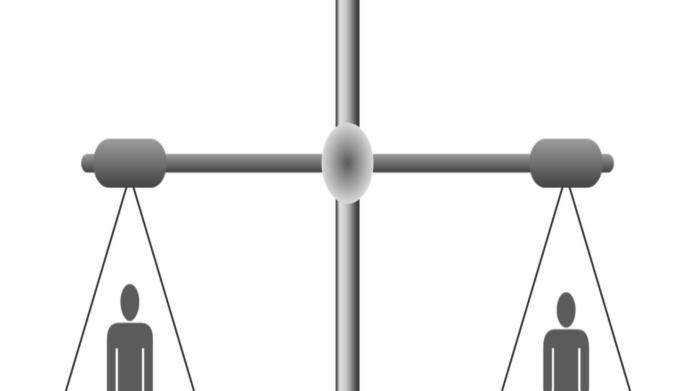To add to the fray, the Republican candidate Donald Trump, accused by dozens of women for sexual misconduct, was found liable in a New York court in May 2023 for the sexual abuse of E. Jean Carroll.
His vice-presidential candidate J.D. Vance then accused Kamala Harris, the Democrat nominee, of being a “childless cat lady,” sparking protests and outrage not just among Swifties, but across America.
Add to the mix, a big gender divide in the support for Harris: 52% of female voters support Harris, but only 43% of men. Among African-American men, only 70% support Harris, according to the latest New York Times/Siena polls.
Compare this to 83% of African-American women who support Harris and 85% of African-American men who supported Biden in 2020. Barack Obama has publicly called out African-American men and suggested that they aren’t comfortable voting for a woman president. One has to wonder: What is the cause for this gender malaise in the US?
While the gender gap between men and women in America has declined on many metrics since the 1950s, these gains have discernibly slowed down in the past two decades, according to Pew Research Center.
In 1950, women comprised only 30% of the US labour force, compared to almost half today. And there are now actually more college-educated women in the workforce than men.
But, at the same time, the pay gap hasn’t changed in the last 20 years, with women earning on average about 82% of what men earn. And in reality, women still lag behind men, with only a third of political offices and a tenth of Fortune 500 CEO positions held by women.
To understand this stagnation, it’s critical to examine feminist discourse in America. Simone de Beauvoir’s seminal text, The Second Sex, had been translated into English by 1953.
Challenging the male patriarchy, De Beauvoir explored how society has subjugated the female gender into a secondary position throughout history, and the book was well received in America.
But modern American feminism really exploded onto the scene with Betty Friedan’s book The Feminine Mystique in 1963. Friedan shattered the image of the idyllic 1950s American suburban housewife in her perfect heels, perfect hair and perfect nails, waiting for her husband to return from work, a meatloaf in the oven, a neatly vacuumed house with a white picket fence and a few obedient children.
Friedan wrote that societal pressure to conform to this stereotype was so strong that women couldn’t even identify what the cause of their angst was. She awakened the voice of women in America who said, in her words, “I want something more than my husband and my children and my home.”
Friedan, together with Gloria Steinem and other activists, galvanized the women’s liberation movement. The same year, John F. Kennedy signed the Equal Pay Act into action. The next year, Title VII of the Civil Rights Act of 1964 was signed by Lyndon Johnson, which included protections for women against job discrimination.
By 1970, Germaine Greer’s The Female Eunuch was published. A call to action, Greer challenged women to demand equality, to question their marriages, their bodies and their agency.
This was a period of landmark legislation, culminating in the Roe vs Wade Supreme Court decision of 1973, which guaranteed American women the constitutional right to have an abortion.
Come the 1980s, however, the hard-won rights of the women’s liberation movement (admittedly narrowly aimed at straight Caucasian women) were threatened by conservative Republic administrations under Ronald Reagan and George Bush who sought to repeal Roe vs Wade.
Susan Faludi captured the reasons for the changing sentiment in her 1991 novel Backlash: The Undeclared War Against American Women. Significant triumphs in women’s equality, in her opinion, were being met by a wave of rising hostility against feminism and feminists.
Today, commentators have observed that Faludi’s documented cycle of progressive women’s rights followed by a conservative backlash seems prophetically true.
The #MeToo movement agitating against sexual assault that proliferated explosively in 2017 after the case against Harvey Weinstein no doubt represented the next great revolution in American feminism.
Yet, that was followed in 2022 by a backlash against women that took away the right to abortion that had been a cornerstone of the women’s reproductive rights’ movement for 50 years.
Could it be that the 2024 US election then is just unfortunately taking place during a cycle of American social history in which a backlash against equality is rising?
Certainly, the rise of the ‘manosphere,’ a loose term for a virtual community of men who are virulently misogynistic and anti-feminist, is another manifestation of this backlash wave and offers support for such a view.
Worse yet, the manosphere, which counts young men among its fastest growing recruits, seems to overlap with the far-right and reinforces the toxic masculinity of the Trump ticket. It remains to be seen whether Harris (and the American people) can counter these forces in the upcoming election.
#gender #divide #womens #movements #victim #success
